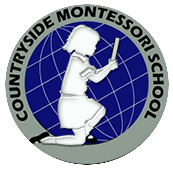Early Childhood Montessori School for Manhasset, NY Families
Montessori schooling is an educational approach that centers around the child, allowing them to engage in self-directed, hands-on activities based on their individual interests. Unlike traditional schools that rely on formal curriculums, the Montessori method gives children the freedom and independence to explore topics that interest them, all within a supportive and collaborative environment.
At Countryside Montessori School, we welcome children 18 months to 6 years old and will help them build fundamental skills so they are well prepared for kindergarten. At our early childhood school, your children will interact with other kids their age and participate in various activities, where they will learn various skills without knowing it. Contact us today for more information!
Why Choose a Montessori School?
Choosing a Montessori school for your child offers an enriching experience, especially during the formative preschool and early childhood years. Montessori education fosters hands-on learning, independence, and self-discovery, making it a perfect fit for young learners. In a Montessori preschool, children are encouraged to learn at their own pace, developing a love for learning while using essential skills like problem-solving, creativity, and critical thinking. These early childhood school programs based on Montessori principles nurture confidence, curiosity, and build a strong foundation for future academic success. At Countryside Montessori School, we are here to ensure each child receives the attention and support they need to thrive. If you live in the Manhasset, NY area, we welcome you to reach out today to learn more about our academics and curriculums!
Montessori Schools vs Traditional Schools
Montessori schools and traditional schools differ in several key ways, particularly in their teaching methods, classroom environment, and approach to learning. Here's a breakdown of the main differences:
1. Teaching Philosophy
- Montessori Schools: Focus on child-centered learning, where students are encouraged to explore and learn at their own pace. The philosophy emphasizes independence, self-motivation, and hands-on learning.
- Traditional Schools: Typically follow a teacher-centered approach, where the teacher leads the class and students follow a set curriculum with structured lessons.
2. Classroom Environment
- Montessori Schools: Classrooms are designed to be calm, organized, and filled with materials that promote exploration and discovery. Students often work individually or in small groups, and the environment encourages freedom within limits.
- Traditional Schools: Classrooms are usually arranged with desks in rows, and students often work as a whole group, following the teacher's instructions.
3. Curriculum and Learning Style
- Montessori Schools: The curriculum is flexible and tailored to each child’s interests and developmental stage. Learning is hands-on, with materials that encourage problem-solving and critical thinking.
- Traditional Schools: The curriculum is standardized and often focused on meeting state or national benchmarks. Learning is more structured, with an emphasis on textbooks, lectures, and tests.
4. Role of the Teacher
- Montessori Schools: Teachers act as guides or facilitators, observing and supporting students as they explore and learn independently.
- Traditional Schools: Teachers take on a more directive role, leading lessons and managing the classroom.
5. Assessment
- Montessori Schools: Assessment is often observational, focusing on a child’s progress and development rather than grades or standardized tests.
- Traditional Schools: Assessment is typically based on tests, quizzes, and assignments, with grades used to measure performance.
6. Age Grouping
- Montessori Schools: Classes often have mixed-age groups, allowing older students to mentor younger ones and fostering a sense of community.
- Traditional Schools: Classes are usually grouped by age, with students progressing through grades year by year.
7. Focus on Life Skills
- Montessori Schools: Emphasize practical life skills, such as cooking, cleaning, and self-care, alongside academic subjects.
- Traditional Schools: Focus primarily on academic subjects, with less emphasis on practical life skills.
Montessori schools prioritize individualized, hands-on learning and foster independence, while traditional schools follow a more standardized, teacher-led approach. Both have their strengths, and the best choice depends on a child’s learning style and the family’s educational goals.
Contact Our Montessori School Today!
At Countryside Montessori School, we are proud to provide your children with the tools and skills to be successful in kindergarten and beyond. Our early childhood school has a
toddler class for 18 months to 3 years and a
primary class for children aged 3 to 6. Both of our programs offer a quiet and structured environment for your child to learn.
Contact our Montessori school today to enroll your child in one of our classes!
